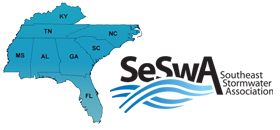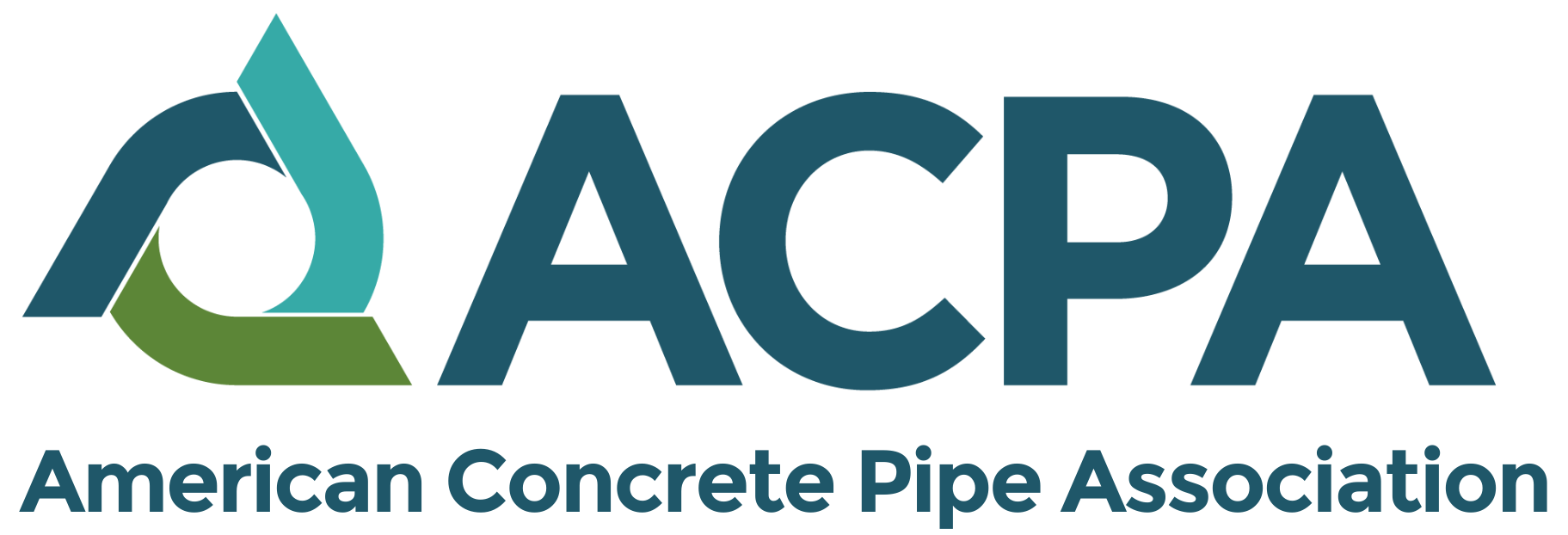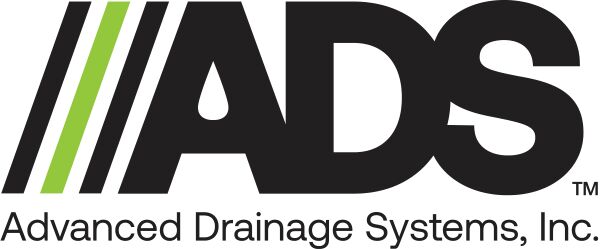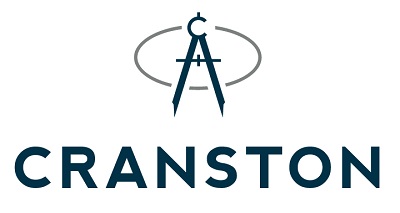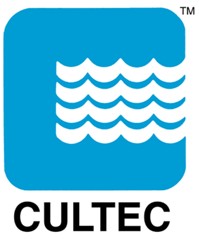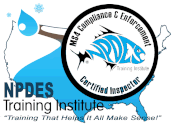- Home
- About Us
- Resources
- Events
- Members Only
- Contact Us
- Join Now
March 2024, Volume 19, Issue 2
TABLE OF CONTENTS
President's Corner
As I write this edition’s article, I see the weather forecast includes another rainy weekend. Even if you’re not in the stormwater business, changes in weather patterns and extreme events impact us all. We are fortunate to be in the business of protecting our most valuable resource – water. We are also challenged to help protect the public from the negative impacts of not only poor water quality, but also reducing the volume of floodwaters, the impact from flooding, and the ability to resume critical operations after a flood event (resiliency). SESWA is featuring its sixth and final Resiliency Report article. SESWA made resiliency a priority as part of the 2022 Action Plan. The actionable items from making resilience a focal point was mostly inherited by the Association’s Stormwater Policy Committee and under the leadership of Steve Peene (Committee Chair) they have done an excellent job. Thank you, Steve, and those that assisted the Committee in developing the articles, reference materials, and more! The Stormwater Policy and Conference & Education Committees worked together to produce last year’s extremely successful Annual Seminar titled Stormwater Management for Resilient Communities. Now that the influx of federal funding is finally making its way down to the local level and some projects are ending, it is time to sign-up for the 19th Annual Stormwater Regional Stormwater Seminar and continue learning by listening to presentations and engaging in dialogue around the Unprecedented Opportunities for Stormwater Infrastructure Projects. There are no guarantees this much attention (in the form of financially investing in natural infrastructure) will come around in our professional careers again - the Seminar provides a great opportunity to capture lessons learned from multiple projects. Not to mention the Atlanta Braves are home playing the Texas Rangers starting Friday night and through the weekend! I look forward to seeing you at the Seminar and/or later this year at the Annual Conference in Chattanooga, TN. SESWA is currently accepting Annual Conference presentations submissions - do not miss that opportunity!! The deadline is next Friday, April 5th. Dave CanaanSESWA President |
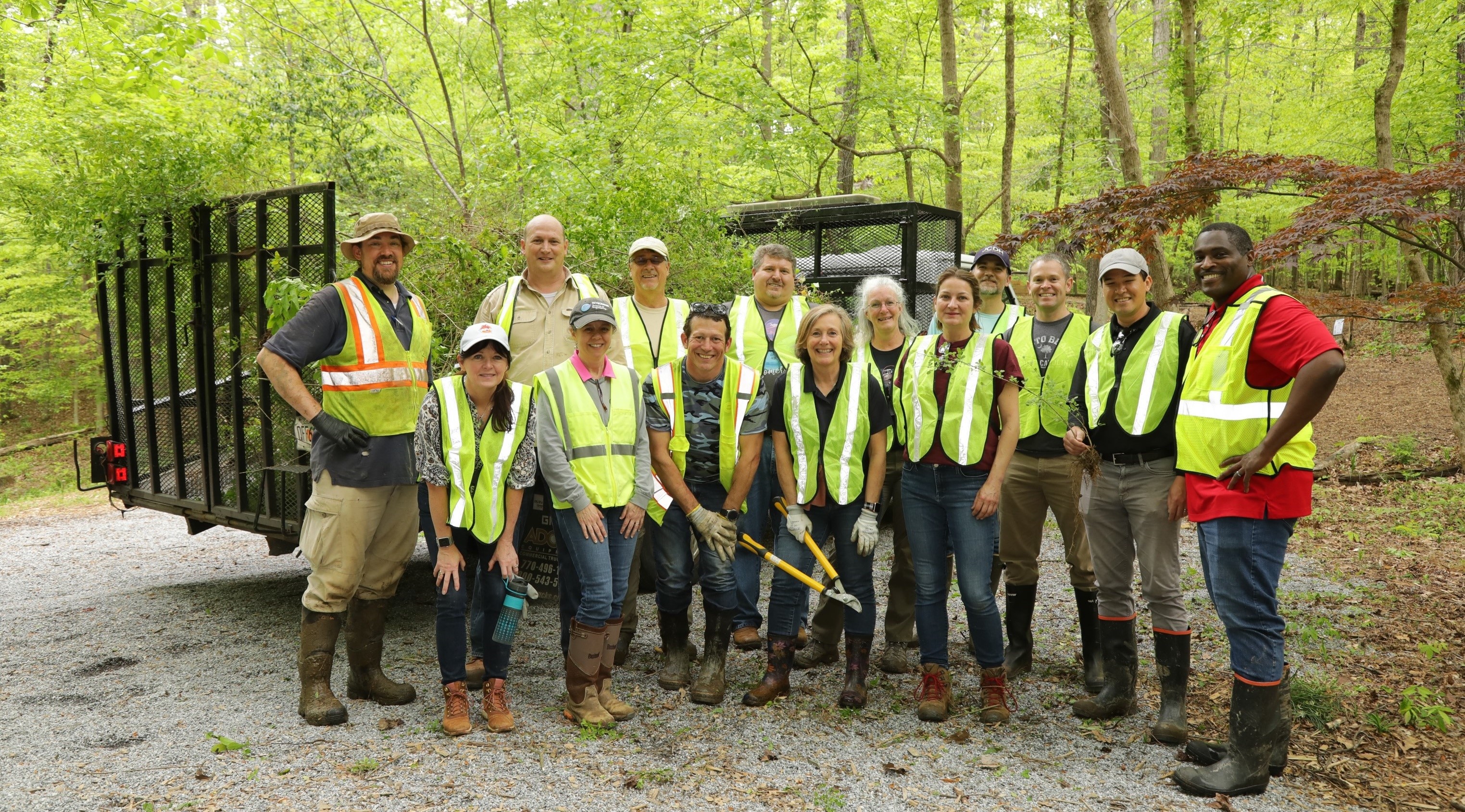 2022 Seminar Service Project Volunteers |
 2023 Seminar Service Project Volunteers |
19th Annual Regional Stormwater Conference – Save the Date!
 Mark your calendars now for SESWA’s 19th Annual Regional Stormwater Conference. The Conference will be held October 9-11, 2024 in Chattanooga, TN. Circle the date on your calendar now and look for information coming to your inbox soon – we hope to see you there!
Mark your calendars now for SESWA’s 19th Annual Regional Stormwater Conference. The Conference will be held October 9-11, 2024 in Chattanooga, TN. Circle the date on your calendar now and look for information coming to your inbox soon – we hope to see you there!
SESWA Annual Conference Student Scholarship
SESWA is pleased to announce the availability of a Student Conference Scholarship in 2024! This program is designed to provide valuable educational and professional connections for college students as they explore the stormwater profession. This conference scholarship is focused on selecting college students with a desire to meet professionals throughout the Southeast and to learn about projects being conducted to address stormwater management and improve water quality in our environment. The deadline to apply is April 14, 2024. Please help us spread the word about this available opportunity. View the application and promotional flyer for additional details.
The 2024 scholarship includes an attendee conference registration to attend SESWA’s 19th Annual Regional Stormwater Conference in Chattanooga, TN on October 10-11, 2024, two nights of lodging at the conference hotel, and a $450 travel/meal stipend. Full-time students currently enrolled for the Spring 2024 Semester that are studying stormwater related topics such as water quality, stormwater management or stormwater finance at a college/university are encouraged to apply. To minimize student expense and time away from school, SESWA encourages only students located within a 200-mile driving distance of the 2024 SESWA Conference location (Chattanooga, TN) apply. To learn more about SESWA’s Conference you can view past events on SESWA’s Conference page. The 2024 SESWA Conference details will be available in May 2024.
Spotlight Webinar – May 16th
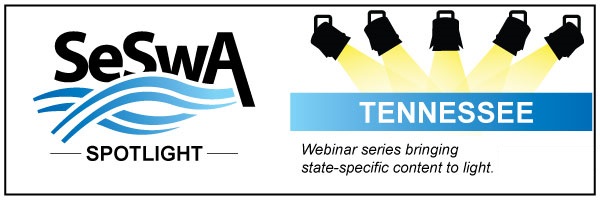 Registration is open for SESWA’s Spotlight Webinar Progressing Towards Stormwater Asset Management. Join us for this free webinar to learn how the City of Knoxville, TN is conducting an inventory of over 25,000 structures to update their stormwater asset inventory and begin to transition the City to an asset management program. The webinar will share how Office and field GIS tools are being used for data collection, visualization, and analysis to achieve the City’s goal of a complete and accurate stormwater system inventory. This presentation will discuss the process of the field data collection and associated tools, coordination between the office and field teams for quality control, and how the data collected is being leveraged to advance the City’s stormwater management program. Register today to save your seat!
Registration is open for SESWA’s Spotlight Webinar Progressing Towards Stormwater Asset Management. Join us for this free webinar to learn how the City of Knoxville, TN is conducting an inventory of over 25,000 structures to update their stormwater asset inventory and begin to transition the City to an asset management program. The webinar will share how Office and field GIS tools are being used for data collection, visualization, and analysis to achieve the City’s goal of a complete and accurate stormwater system inventory. This presentation will discuss the process of the field data collection and associated tools, coordination between the office and field teams for quality control, and how the data collected is being leveraged to advance the City’s stormwater management program. Register today to save your seat!
2024 WOTUS Pending Challenges
Kevin Coyne, SESWA
The pressure against the 2023 WOTUS Rule continues with a multitude of states and industry representatives looking to push back and issue challenges to WOTUS implementation. A coalition of Republican led states have challenged WOTUS based on constitutional concerns over the application of WOTUS to navigable waters, stating the updated rule overreaches into non jurisdictional waters. The coalition of states is basing most of this challenge off past arguments made in Idaho and Texas. Those challenges in Idaho and Texas, both which include cooperation from industry groups, are still in the mix and pushing to vacate the updated 2023 WOTUS Rule. The Idaho and Texas arguments utilize the approach of state sovereignty, and the federal government is beyond their limits with the WOTUS implementation approach and are stepping into waters not applicable to the federal oversight. In March, a new challenge was introduced, one that originates from a landowner in North Carolina represented by the Pacific Legal Foundation, a group that has advocated for reduced oversight by regulatory agencies for many years. This new challenge claims the federal rule is too broad and needs to be more specific, in terms of what is applicable to WOTUS regulations, and what is not. This challenge was filed in March, in the Eastern District of North Carolina U.S. District Court, and if it is heard and the plaintiff wins, could mean the number of states that implement the pre-2015 WOTUS rule (currently 27) could greatly expand. SESWA will follow all these challenges and continue to provide information as any of these efforts move forward or decisions are made.
Collaborating To Promote Sustainability in Affordable Housing
Ariel Bushel, City of Raleigh, NC
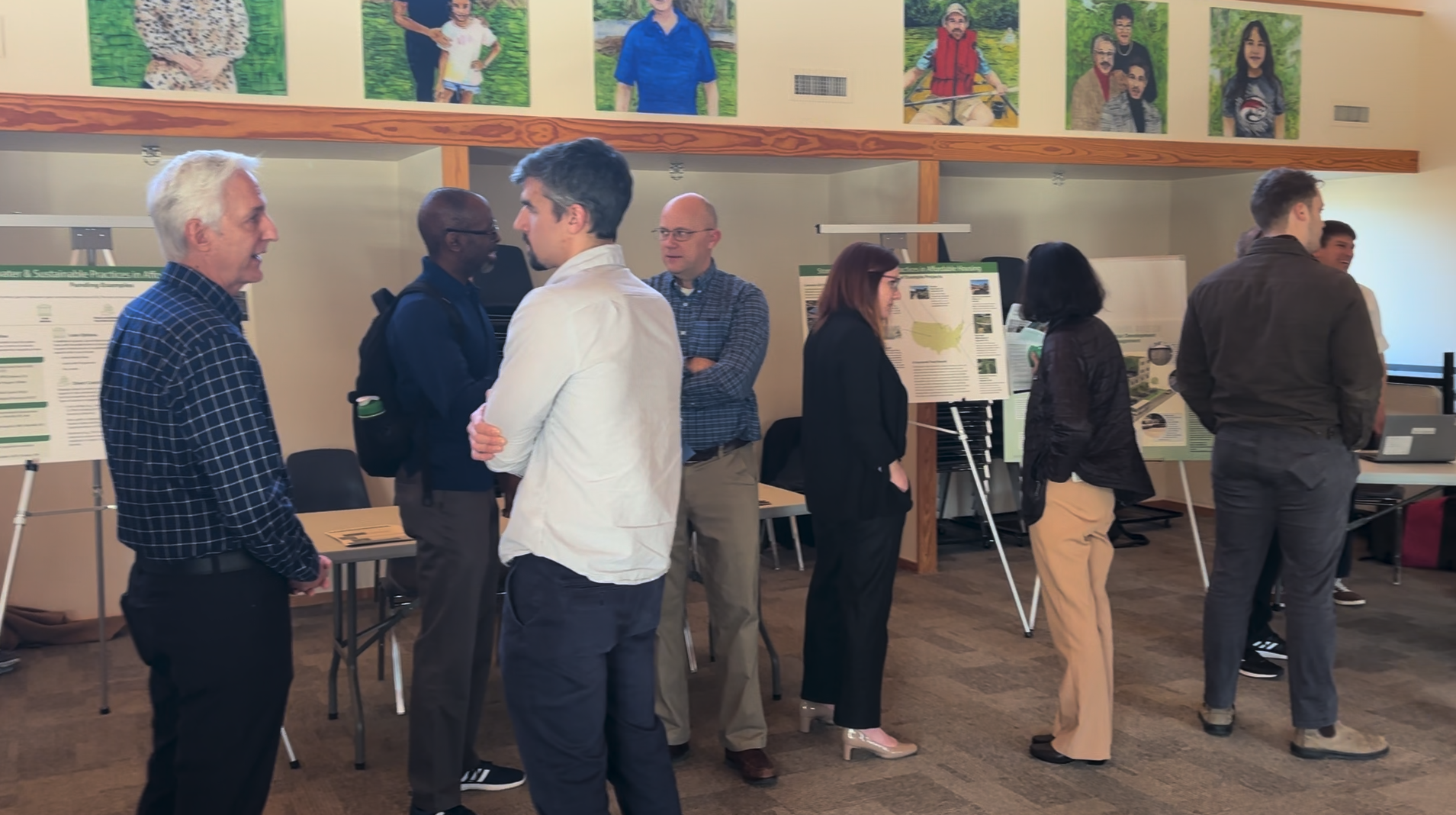 Raleigh Stormwater, Housing and Neighborhoods, the Office of Sustainability, Duke Energy, and Tetra Tech hosted the development community (architects, developers, and consultants) to learn about incentives and funding for installing sustainable measures in affordable housing. City staff provided information and resources about affordable housing request for proposal (RFP) and Notice of Funding Availability (NOFA) criteria, city stormwater regulations, incentives for GSI, subsidies for rooftop solar, and GSI adaptation for commercial business and properties. Tetra Tech compiled and presented regional and national examples of affordable housing projects that successfully incorporated green stormwater infrastructure, such as the Southside Community in Asheville, NC and the Odie Street Stormwater Project in Hillsborough, NC. These examples demonstrated how partnerships, diverse funding strategies, and recognition of shared goals between affordable housing and GSI can be leveraged to complete projects that are cost effective, environmentally friendly, and diverse across a variety of project scales. The workshop was attended by approximately 50 individuals and received positive feedback. Both attendees and staff appreciated a collaborative event where development experts could engage, learn, and promote sustainability practices.
Raleigh Stormwater, Housing and Neighborhoods, the Office of Sustainability, Duke Energy, and Tetra Tech hosted the development community (architects, developers, and consultants) to learn about incentives and funding for installing sustainable measures in affordable housing. City staff provided information and resources about affordable housing request for proposal (RFP) and Notice of Funding Availability (NOFA) criteria, city stormwater regulations, incentives for GSI, subsidies for rooftop solar, and GSI adaptation for commercial business and properties. Tetra Tech compiled and presented regional and national examples of affordable housing projects that successfully incorporated green stormwater infrastructure, such as the Southside Community in Asheville, NC and the Odie Street Stormwater Project in Hillsborough, NC. These examples demonstrated how partnerships, diverse funding strategies, and recognition of shared goals between affordable housing and GSI can be leveraged to complete projects that are cost effective, environmentally friendly, and diverse across a variety of project scales. The workshop was attended by approximately 50 individuals and received positive feedback. Both attendees and staff appreciated a collaborative event where development experts could engage, learn, and promote sustainability practices.
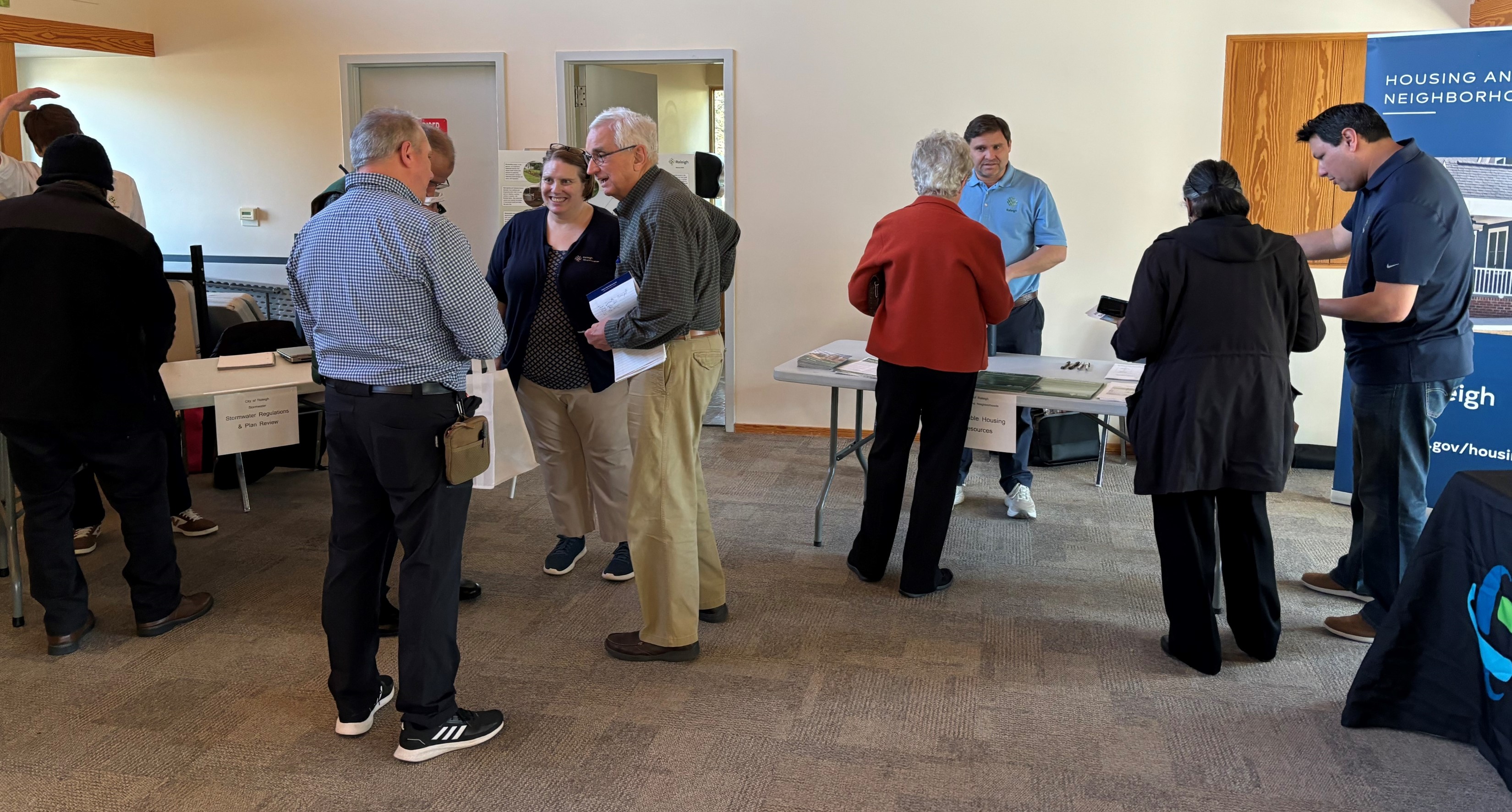
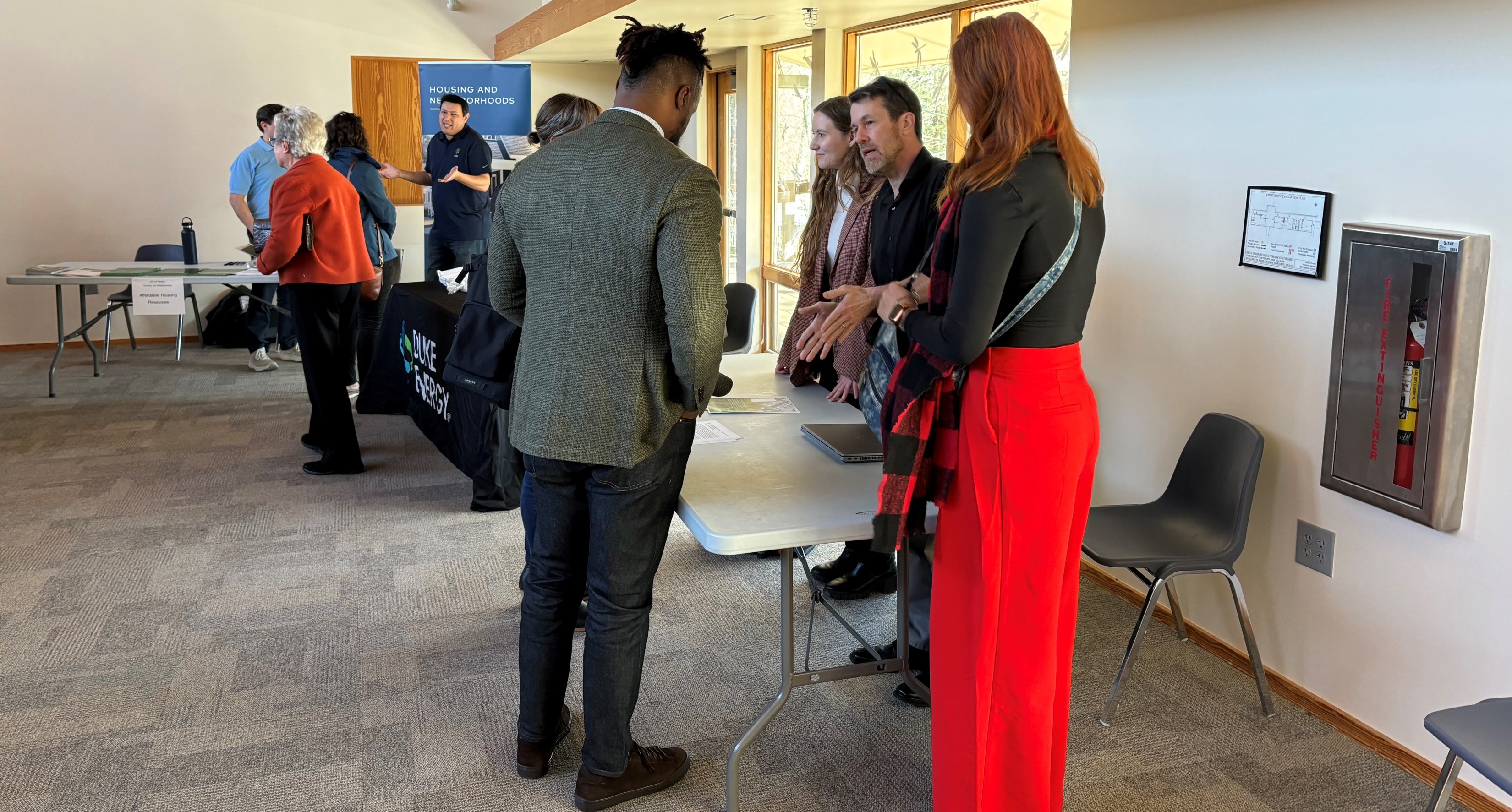
Synergizing Sustainability: Collaborative Strategies for GI Maintenance Across City Departments
Maria Price, City of Chattanooga, TN
With a growing number of Green Infrastructure installations on city properties, the need for specialized maintenance became more apparent. The City of Chattanooga created a maintenance arm, Natural Resources, funded by the Stormwater fee that operates under the Parks and Outdoors Department as many of these GI installations are on park properties. The city also recognizes a shortage of knowledgeable maintenance personnel in the private sector and are partnering with the City’s Workforce Development group and others to create a program to provide these specialized skills and a pathway to future employment in the landscape management industry. The Stormwater Division also works closely with the Transportation Division on GSI in the ROW such as permeable pavers and pervious asphalt to address maintenance challenges such as unraveling in the turning radius, shifting pavers, and settling from utility cuts and establish standards to prevent similar issues with GSI on City maintained spaces in the future.
Virtual Stream Habitat Survey
John Butler, Gwinnett County, GA
Gwinnett County, GA has created a virtual tour of a stream targeting teachers, citizen scientists, or anyone interested in learning how to do a stream habitat assessment. The technology implemented for this online activity is the same used for real-estate 3D tours. iView 3D has worked with Gwinnett County on more typical applications of the infrared, 3D camera to create public tours of water reclamation facilities at the county and was more than willing to try something new. This virtual tour puts the viewer in the stream channel with a 3D view of the sand bars, eroded banks with exposed roots, and even some human infrastructure such as bridges and aerial sewer crossings. The webpage housing this activity includes full instructions, a link to the stream habitat survey form from GA Adopt-a-Stream, and tips for more applications. The hope is that teachers without a stream on the school property can use this tool to virtually get the kids in the stream to talk about water quality, erosion, and stormwater.
Florida 404 Wetland Program Challenge Overview
Kevin Coyne, SESWA
In late 2020, a contentious move by the federal government allowed the state of Florida to take over control of the 404 wetland permitting program. Florida became the third state (joining Michigan and New Jersey) to take on this permitting authority, and as one would expect, this move was applauded by the development sector and lauded by environmental groups. Almost immediately after the federal to state transition, a series of challenges were submitted, and on February 15, 2024, a decision was made that had major implications to the state-run program. The decision by the District of Columbia U.S. District Court found the state approach to endangered species review was not adequate and warranted a de-authorization for state coverage, and pulled the 404 program review back to the federal partners (USACE). This decision did not impact currently submitted and reviewed permits already considered to have no impact on threatened and endangered species but did put a hold on any new permits. Some have estimated that over 1,000 permits are on hold at this time, and until further decisions are made, no action will be taken. On February 26th, the state filed a motion for a limited stay, to maintain some of the current state 404 program while a final decision and plan of action was developed, but at this time a decision on that motion has not been made. On March 21st, the United States House of Representatives passed the Creating Confidence in Clean Water Permitting Act (HR 7023), which included an amendment by Florida Representative Aaron Bean that codifies the U.S. Environmental Protection Agency’s approval of Florida’s Section 404 Program. HR 7023 will move to the Senate for review and potential approval, then would move on for final signature by the President if passed by the Senate. SESWA will continue to monitor this issue and report on any new developments as they take place.
Public Comments Accepted on North Carolina’s Proposed 303(d) List
Daryl Hammock, WK Dickson
The North Carolina Department of Environmental Quality Division of Water Resources is now accepting public comment on the proposed list of streams, rivers, reservoirs, and other water bodies in North Carolina considered to be “impaired,” or that do not meet water quality standards, in 2024.
The 2024 draft 303 (d) list, as well as other related documents, can be found on the DWR website. In the proposed 303(d) list for 2024, 70 water bodies were added, while 56 waters were delisted.
DWR staff will accept public comments on the list until April 26, 2024. Comments must be submitted by email no later than midnight April 26th to: [email protected]. For specific listing questions, or to request an assessment fact sheet for a specific waterbody, email Cam McNutt, Water Quality Data Coordinator, at [email protected].
Connecting with City Council to Promote Stormwater Maintenance in Raleigh, NC
Ariel Bushel, City of Raleigh, NC
Connecting with elected officials can build a foundation of trust, connection, and appreciation for government services. The Raleigh Stormwater Maintenance Team recently had an opportunity to host a ride along tour with a city council member to demonstrate the process and importance of flushing stormwater pipes. Stormwater Maintenance staff operated the Genesis flusher truck at a reported site, which had previous difficulty with our standard flusher truck, and explained how using the Genesis truck conserves water, cuts the total time in half, and provides more power to flush pipes. The team also showed the operation of a pole camera, how it highlights pipe conditions, and can detect pipe obstructions with a clear image. The council member enjoyed the experience and appreciated the hard work and importance of the stormwater maintenance team. She was eager to learn about the partnership with Raleigh Transportation, how staff manage and prioritize their workload, and offered ideas for how the council can improve their process through future budgeting. This ride along tour helped advocate our stormwater smart initiative that will carry on to other council members, the city manager, and to Raleigh residents.
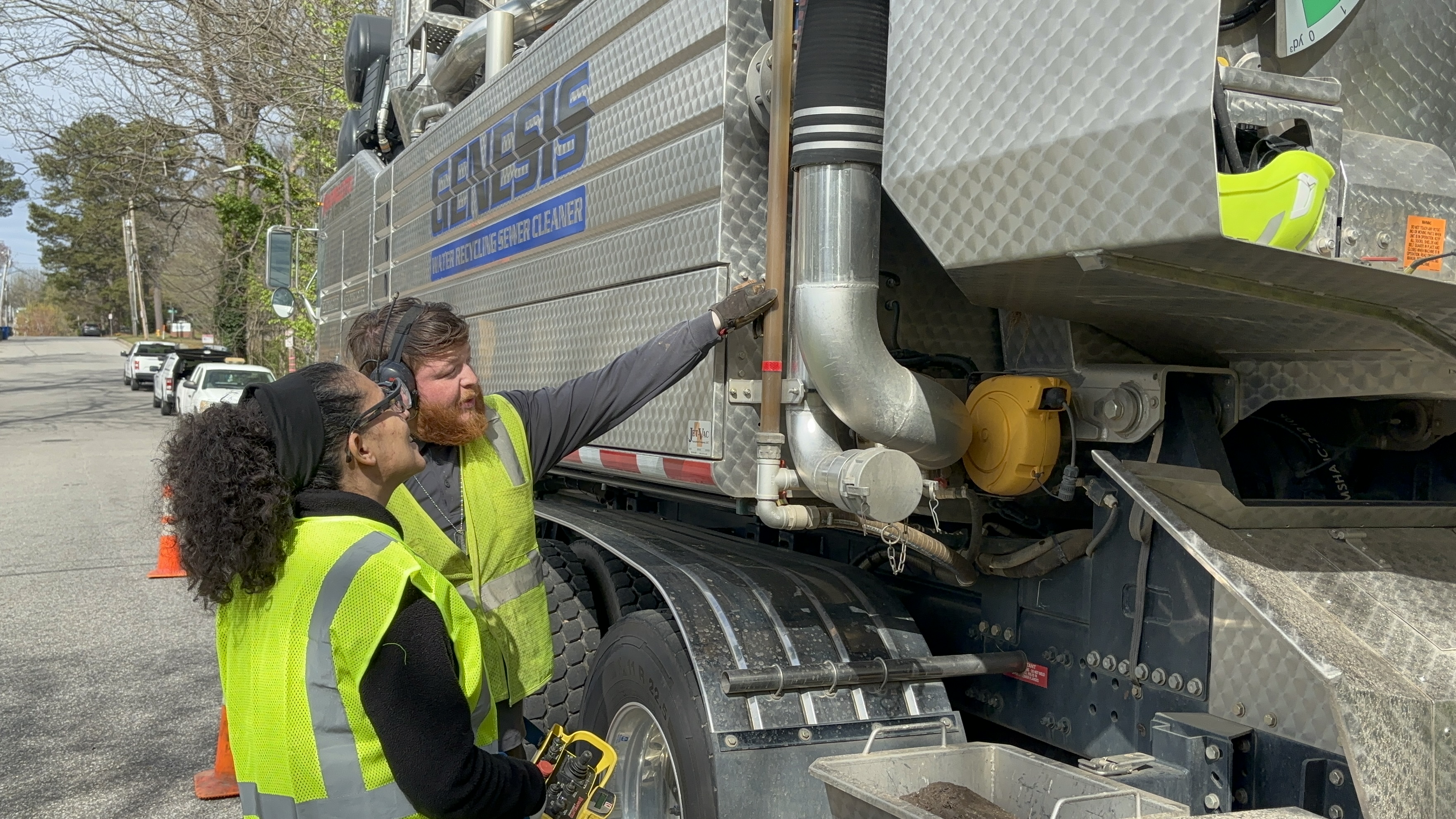 |
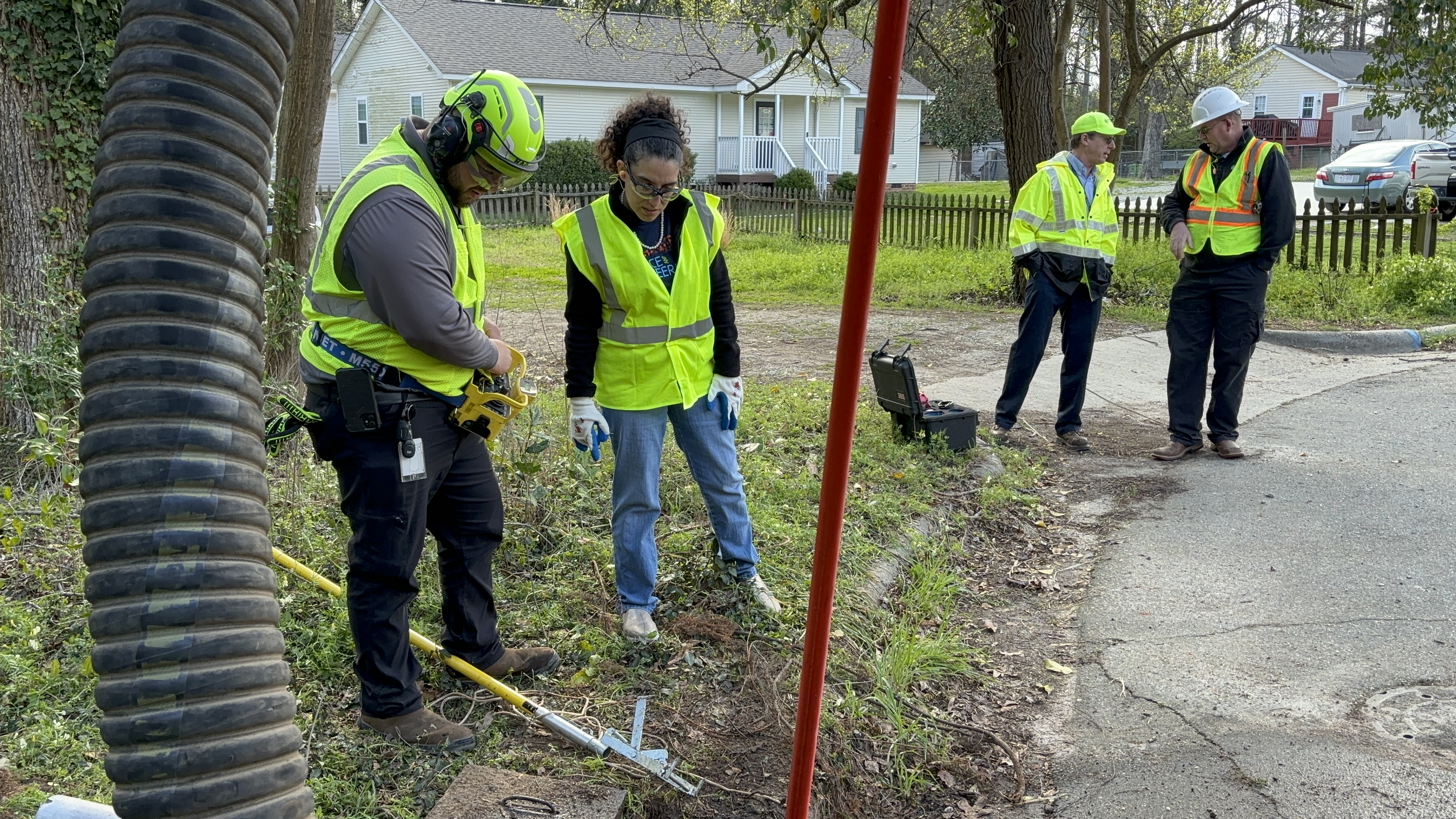 |
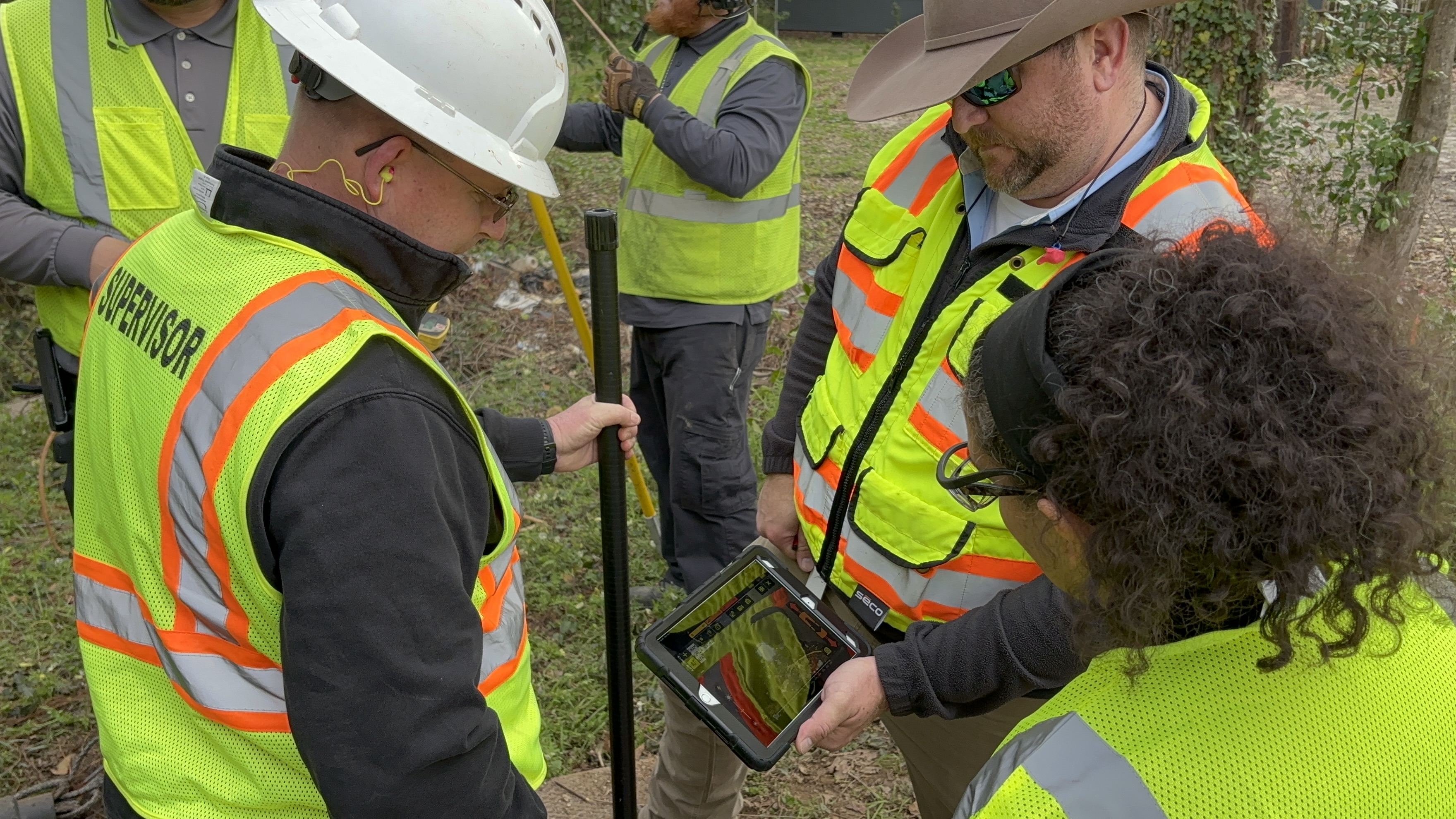 |
Collaborative Solutions for Sustainable Communities
Maria Price, City of Chattanooga, TN
Recognizing the overlap between the MS4 community and Floodplain Management, the TN Stormwater Association and TN Association of Floodplain Management held a well-attended joint summit to bring together floodplain and stormwater professionals to create a better understanding of the permit responsibilities and how they can work together in the future. The City of Chattanooga partnered with USACE through their cost-share Planning Assistance for States (PAS) program to update and create models of the many waterways flowing through the city to inform flood management strategies and guide development. Utilizing Life-SIM, Chattanooga can assign dollar values to damage assessments from various events to help inform resiliency strategies and capital projects. The American Concrete Pipe Association has provided recurring training of the City’s construction forces and technical guidance on specifications and standard drawings. As Tennessee’s fastest growing city, collaborating with these external stakeholders has helped Chattanooga’s stormwater and floodplain management programs become more robust, informed, and sustainable during emergency situations and the city’s continued growth.
Back to the top
NACWA Corner
Provided by the National Association of Clean Water Agencies
Matthew McKenna, Director, Government Affairs
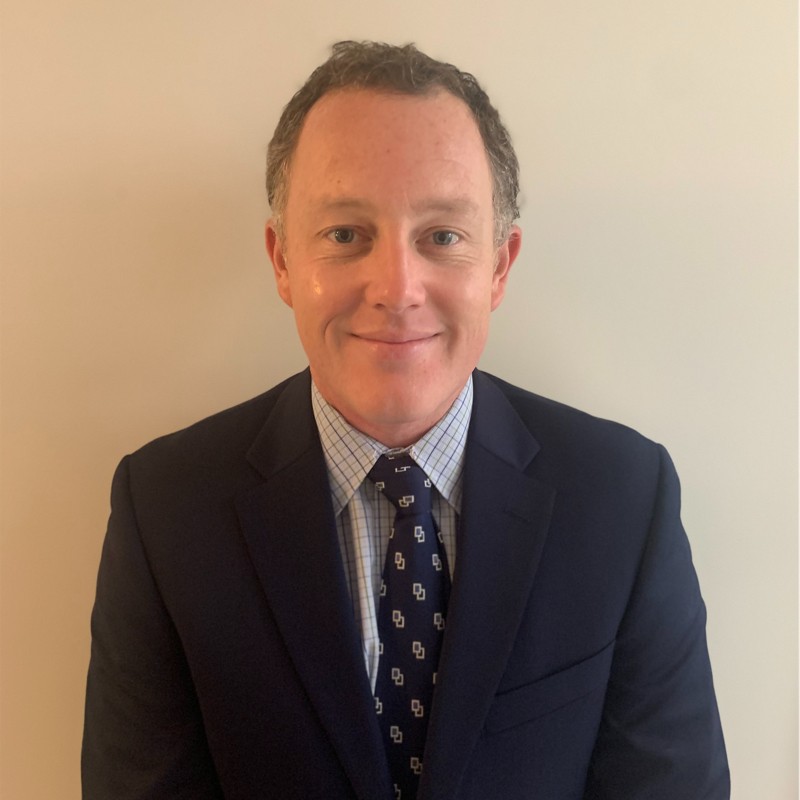 President’s Budget Increases EPA Funding
President’s Budget Increases EPA Funding
President Joe Biden released his FY 2025 budget request earlier this month, calling for $10.994 billion for the Environmental Protection Agency (EPA). This is an increase of almost $2 billion from what Congress appropriated for the EPA in FY 2024. While the President’s budget is significantly higher than the Congressional appropriations level, it remains unlikely that the current Congress will provide the EPA with the President’s full funding ask.
Even with the higher dollar amount, the President’s budget reduces the funding for the Clean Water State Revolving Fund (CWSRF) by approximately $400 million, from $1.639 billion in FY 2024 to $1.24 billion in FY 2025, while keeping the Drinking Water State Revolving Fund level at $1.126 billion in FY 2025.
The administration’s budget sets forth a new “baseline” for the CWSRF by subtracting previous Congressional earmarks included in the Interior-Environment appropriations bill and reducing the allotment used for CWSRF capitalization grants. The FY 2025 budget request is based on the FY 2023 allotment, totaling $776 million for state capitalization grants after removing Congressional earmarks.
Under the Infrastructure Investment and Jobs Act (IIJA), Congress reauthorized the CWSRF and DWSRF at $3.25 billion per year for each through FY 2026. However, the budget request significantly decreased from the total authorization, calling for about one-third of the authorized funding.
Another major water infrastructure program, the Water Infrastructure Finance and Innovation (WIFIA), would receive $80 million under the Biden budget proposal. Congress provided a little more than $72 million for WIFIA in FY 2024. WIFIA provides financing for critical water infrastructure projects, including the construction of stormwater systems that address aging infrastructure and make communities more resilient.
The EPA’s Sewer Overflow and Stormwater Reuse grants remain flat at $50 million, which Congress appropriated for the program in FY 2024. This program provides grants to mitigate the impacts of extreme and wet weather events. At least 20 percent of the appropriated funds must be used for projects utilizing green infrastructure, water, energy efficiency improvements, or other environmentally innovative activities.
The budget request calls for $5 million for the EPA’s Stormwater Infrastructure Technology Program. This program, created through the IIJA, seeks to create three to five centers of excellence for new and emerging stormwater control infrastructure technologies. Congress has yet to appropriate any money for IT.
The President’s budget calls for $42.8 million to advance EPA’s PFAS Strategic Roadmap. Focusing on the acceleration of efforts to develop various methods and tools to manage PFAS risks, particularly in small and underserved communities, activities under the Roadmap include the development of new analytical techniques, toxicity values, effluent limitation guidelines, as well as risk communication, and other tools to support the management PFAS risks across the country.
The budget request also includes $270.5 million for EPA’s Surface Water Protection Program, which is focused on restoring the quality of the Nation’s coastal waters, rivers, lakes, wetlands, and streams under the Clean Water Act. This program supports implementing water quality standards and EPA’s water quality programs, including the National Pollutant Discharge Elimination System (NPDES).
More specifically, funding supports EPA programs like the Environmental Finance Centers Program and the Water Infrastructure and Resiliency Finance Center, which can assist communities in improving their stormwater systems and infrastructure. In addition, the budget focuses on increasing resources on Integrated Planning (IP) and green infrastructure to better address wet weather improvements such as combined sewer overflows (CSOs), sanitary sewer overflows (SSOs), and stormwater discharges. The budget calls explicitly on the EPA to reinvigorate the Green Infrastructure Federal Collaborative, a collaborative effort to crosscut across federal agencies to implement green infrastructure planning in all government projects. Please contact Matthew McKenna, NACWA’s Director of Government Affairs with questions.
Don't see news from your state?
Please contact us with your news or share your comments on our newsletter by emailing us at [email protected].
